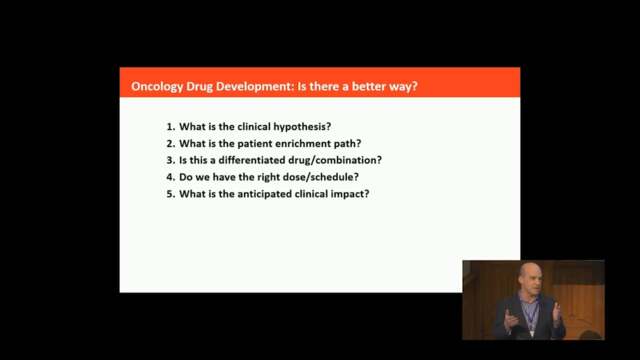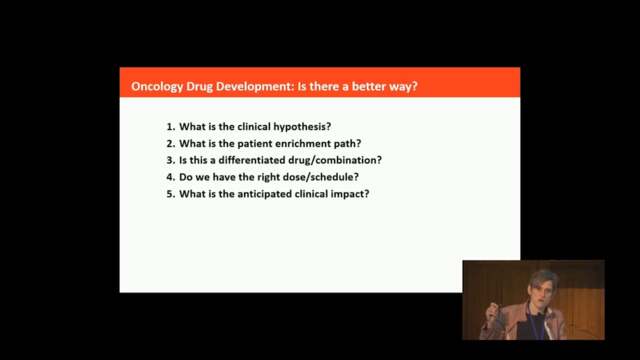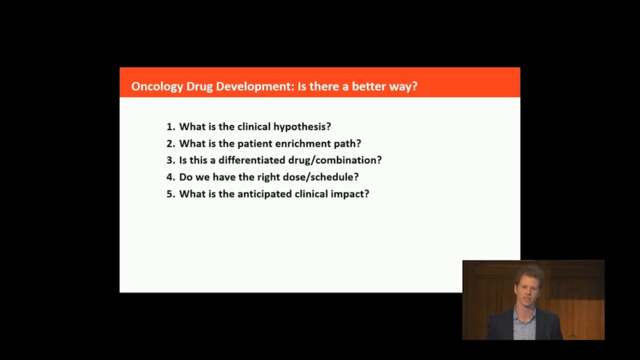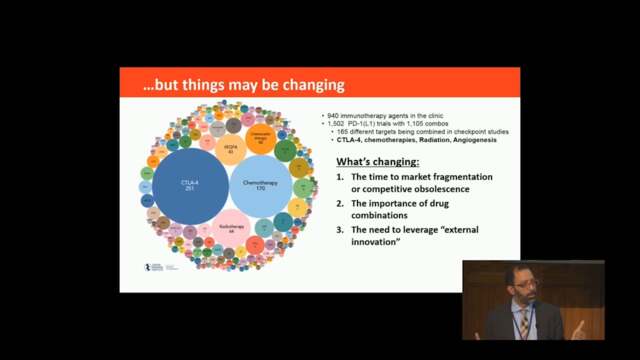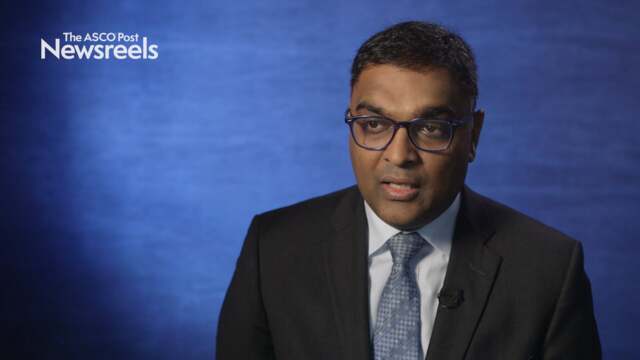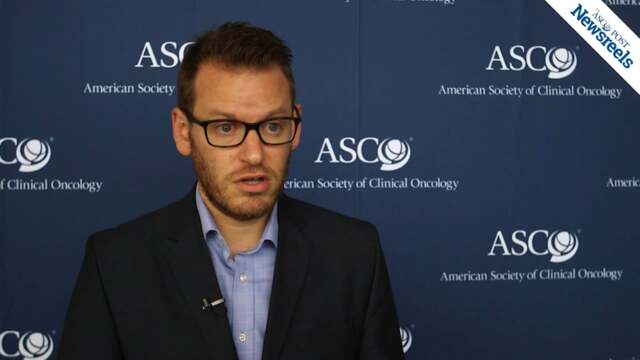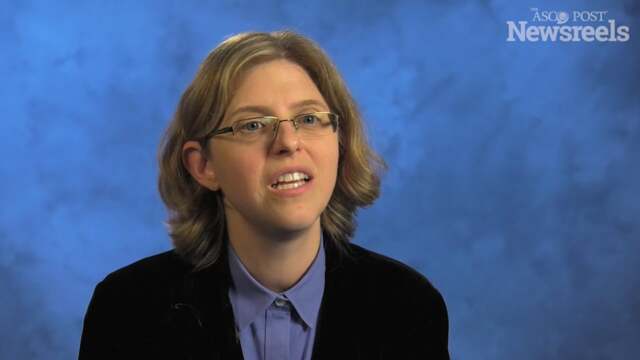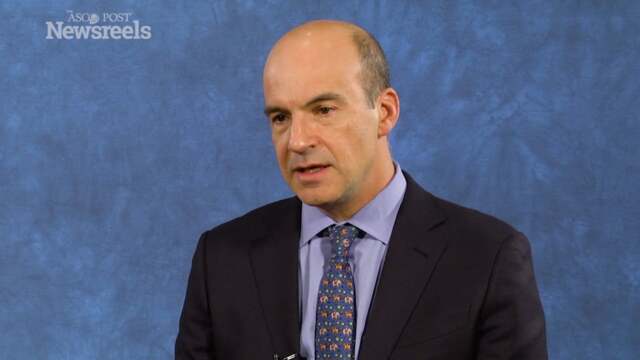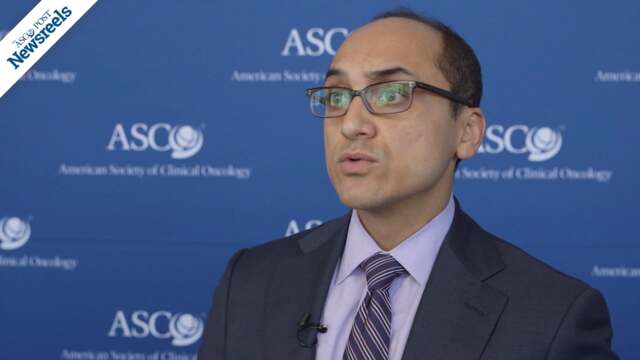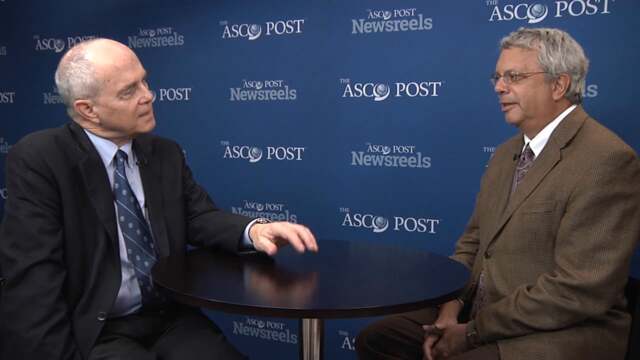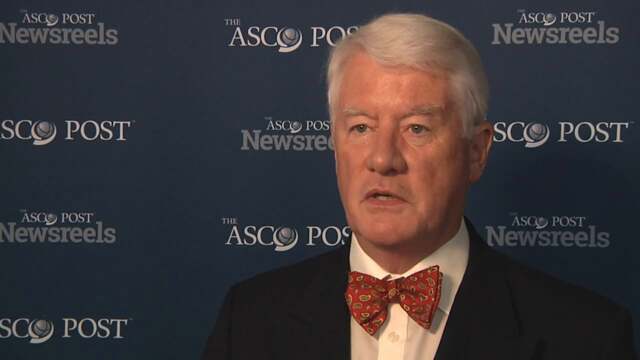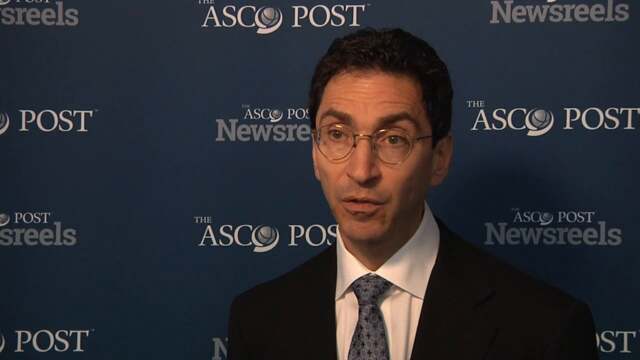2018 ASCO: Treatment for Colorectal Cancer in Washington State Costs Twice as Much as in Neighboring Area of Canada, Despite No Difference in Survival
An analysis of health claims data from two demographically similar regions on either side of the U.S./Canada border shows that a common treatment for advanced colorectal cancer costs twice as much in Western Washington State than in British Columbia—$12,345 vs $6,195 monthly per patient....
Cancer Cost Planning and Accounting for Patients Under 65
A new study published by Banegas et al in JNCCN–Journal of the National Comprehensive Cancer Network has found that cancer care costs in the United States are higher for people under age 65—and that costs increase with disease stage. Despite the fact that nearly half of new cancer...
Peter Bach, MD, MAPP, on Drug Development and the Cost of Researching and Treating Cancer
Peter Bach, MD, MAPP, Director of the Center for Health Policy and Outcomes, Memorial Sloan Kettering Cancer Center, speaks during Panel 4: Drug Development and the Cost of Researching and Treating Cancer at The Policy, Politics and Law of Cancer, presented by The Solomon Center for Health Law and Policy at Yale Law School, in collaboration with Smilow Cancer Hospital and Yale Cancer Center.
Amy Kapczynski, JD, on Drug Development and the Cost of Researching and Treating Cancer
Amy Kapczynski, JD, Professor of Law and Faculty Director, Global Health Justice Partnership, Yale Law School, speaks during Panel 4: Drug Development and the Cost of Researching and Treating Cancer at The Policy, Politics and Law of Cancer, presented by The Solomon Center for Health Law and Policy at Yale Law School, in collaboration with Smilow Cancer Hospital and Yale Cancer Center.
Jeffrey Schwartz, MBA, on Drug Development and the Cost of Researching and Treating Cancer
Jeffrey Schwartz, MBA, Managing Director, Bain Capital Life Sciences, speaks during Panel 4: Drug Development and the Cost of Researching and Treating Cancer at The Policy, Politics and Law of Cancer, presented by The Solomon Center for Health Law and Policy at Yale Law School, in collaboration with Smilow Cancer Hospital and Yale Cancer Center.
Levi Garraway, MD, PhD, on Drug Development and the Cost of Researching and Treating Cancer
Levi Garraway, MD, PhD, Senior Vice President, Global Development & Medical Affairs, Eli Lilly, speaks during Panel 4: Drug Development and the Cost of Researching and Treating Cancer at The Policy, Politics and Law of Cancer, presented by The Solomon Center for Health Law and Policy at Yale Law School, in collaboration with Smilow Cancer Hospital and Yale Cancer Center.
Outcomes With a Payer-Sponsored Medicare Advantage Cancer Management Program
In a study reported in the Journal of Oncology Practice, Hoverman et al found that a Texas Oncology–Aetna Medicare Advantage collaboration resulted in cost savings, good adherence to treatment pathways, and high patient satisfaction over 3 years. Study Details The collaborative...
Use of Charity Assistance to Pay for Novel Oral Anticancer Agents
In a study reported in the Journal of Oncology Practice, Olszewski et al found that 36% of patients receiving novel oral anticancer agents in a Rhode Island academic research center received charity assistance to pay for treatment, including 47% of patients aged ≥ 65 years. Study Details The...
Population-Based Screening for Breast and Ovarian Cancer Genetic Mutations Appears Cost-Effective
The cost-effectiveness of population-based panel testing for the known high- and moderate-penetrance ovarian and breast cancer mutations, including BRCA1, BRCA2, RAD51C, RAD51D, BRIP1, and PALB2, was not known. Now, a study evaluating the cost-effectiveness of screening the general population for...
ACCC 2017 Survey Shows Cost of Treatment Is Top Threat to Cancer Program Growth
The Association of Community Cancer Centers (ACCC) 8th annual Trending Now in Cancer Care survey, conducted in partnership with Advisory Board’s Oncology Roundtable, has identified current and emerging trends across U.S. cancer programs. When asked to identify the top threats to future cancer ...
Out-of-Pocket Costs and Prescription Abandonment of Novel Oral Anticancer Agents
In a retrospective claims-based study reported in the Journal of Clinical Oncology, Doshi et al found that higher out-of-pocket costs were associated with increased rates of prescription abandonment for novel oral anticancer agents. Study Details The study involved data on 38,111 patients from...
Alok A. Khorana, MD, on The Costs of VTE in Cancer Patients: Expert Perspective
Alok A. Khorana, MD, of the Cleveland Clinic, discusses the prevalence of venous thromboembolism in cancer patients treated at U. S. emergency departments and associated costs, mortality, and hospital admissions in the United States (Abstract 219).
ASCO Applauds New Report on Making Medicines Affordable
Today, ASCO President Bruce E. Johnson, MD, FASCO, released the following statement: “A report released today by the National Academies of Sciences, Engineering, and Medicine underscores the imperative our nation faces to address the affordability of drugs for medical conditions that have...
Climbing Costs for Treating Breast Cancer Poised to Strain Medicare in the Near Future
With cancer care costs projected to increase 32% from 2010 to 2020, researchers are working to determine the main drivers of costs for treating breast cancer. In a study led by Ami Vyas, PhD, MS, MBA, of the University of Rhode Island, published in the November issue of JNCCN–Journal of the...
Out-of-Pocket Costs Remain High, Even for Insured Patients With Cancer
One-third of insured people with cancer end up paying more out-of-pocket than they expected, despite having health insurance coverage, researchers at the Duke Cancer Institute have found. The data showed that costs such as copays and deductibles could lead to financial distress among insured...
ASCO Offers Path to Addressing Affordability of Cancer Drugs in New Position Statement
Today, ASCO issued a position statement aimed at contributing to the national dialogue on rising cancer drug prices. The statement, which asserts that any solutions must also preserve patients' access to care and foster innovation, analyzes a wide array of options and recommends that a panel of...
Impact of Subsidies on Use of Oral Immunomodulatory Drugs in Medicare Beneficiaries With Myeloma
According to a study by Olszewski and colleagues in the Journal of Clinical Oncology, Medicare Part D beneficiaries without a low-income subsidy may face daunting barriers in affording oral immunomodulatory drugs for myeloma. The low-income subsidy markedly reduces out-of-pocket costs for...
ASCO 2017: Implementing Cost Transparency in Oncology
Being transparent about the cost of cancer treatments with patients has been increasingly recommended to help minimize financial harm and improve care, but what's preventing or derailing those conversations is less understood. New findings from Penn Medicine that identified several barriers and key ...
ASCO 2017: Many Emergency Department Visits Among Patients With Cancer Appear Preventable
Among patients with cancer, as many as 53% of emergency department visits that do not require admission could be avoided with better symptom management and greater availability of outpatient care tailored to their needs, according to a new study from Fred Hutchinson Cancer...
Daniel A. Goldstein, MD, on Pembrolizumab for Lung Cancer: Saving Costs by Adjusting Dosage
Daniel A. Goldstein, MD, of Emory University and Rabin Medical Center, discusses his study findings that show nearly $1 billion in savings when patients receive personal weight-based doses instead of a predetermined fixed dose for treatment of PD-L1-positive non–small cell lung cancer. (Abstract 9013)
Economic Impact of Chronic Conditions on Cancer Survivors
There is a higher prevalence of chronic health conditions among cancer survivors vs people without a history of cancer, and the presence of chronic conditions is associated with greater annual medical expenditures compared with the absence of such conditions in cancer survivors. These findings were ...
Cost of Hospitalization for Cancer-Related Neutropenia or Fever
In a study of 2012 data, Tai et al, of the Centers for Disease Control and Prevention, estimated that average costs per hospital stay for cancer-related neutropenia or fever were approximately $25,000, with a total cost of more than $2.7 billion. Their study was published in the Journal of Oncology ...
Higher Costs for Complex Cancer Surgery May Be an Indicator of Lower-Quality Care
Higher costs for complex cancer surgery may be an indicator of worse—rather than better—quality of care, according to new research by experts at Rice University and The University of Texas MD Anderson Cancer Center. Their findings are published by Ho et al in Surgery, and provide...
Cost-Effectiveness and Cost Savings of a Hospital-Based Palliative Care Program
In an analysis reported in the Journal of Oncology Practice, Isenberg et al sought to determine the maximum possible costs for an inpatient palliative care unit to be considered cost-effective. Although the palliative care unit was not cost-effective on the basis of variable costs, it was cost...
New ACS CAN Report Examines Expected Patient Costs for Common Cancer Diagnoses
On April 11, the American Cancer Society Cancer Action Network (ACS CAN) released its first report examining the costs of treating cancer, specifically the out-of-pocket portion patients face. The report, released at the organization’s annual national policy forum, found U.S. cancer patients...
Studies Find Disparity in Life Expectancy Widening Between Wealthy and Poor Americans
To better understand the conditions and mechanisms driving health disparities in the United States, The Lancet partnered with physicians and public health researchers from the City University of New York, Harvard Medical School, Cornell University, Yale School of Medicine, and the New York...
Financial Stress in Patients With Locally Advanced Head and Neck Cancer
In a single-institution study reported in the Journal of Oncology Practice, de Souza et al found that two-thirds of patients with locally advanced head and neck cancer had to use a financial coping strategy to help pay for care within the first 6 months of treatment. Study Details The study...
Laura E. Panattoni, PhD, on Costs of Preventable Emergency Department Use
Laura E. Panattoni, PhD, of the Fred Hutchinson Cancer Research Center, discusses results from a regional study on emergency department costs during cancer treatment and the need to focus on managing symptoms (Abstract 2).
Patients With Cancer History More Likely to Change Prescriptions to Save Money
A new study led by American Cancer Society investigators found that cancer survivors are more likely to change their prescription drug use for financial reasons than those without a cancer history. These findings were published by Zheng et al in Cancer. The rising cost of cancer drugs imposes a...
Payers Weigh the Implications of Multigene Testing Coverage
Innovation in precision medicine has introduced an amalgam of testing options, of which hereditary cancer panels—multigene tests—are a major component. Additionally, the importance of inherited cancer genomics was further bolstered by former President Barack Obama’s Precision...
Variable Transparency of Industry-Sponsored Oncology Financial Assistance Programs
A “secret shopper” study reported by Zafar et al in the Journal of Oncology Practice found that transparency of industry-sponsored oncology patient assistance programs varied among programs. Study Details The study involved accessing pharmaceutical manufacturer–sponsored patient ...
ACCC 2016 Survey Finds Cancer Drug Costs Remain the Most Critical Challenge to Care
As more cost pressures are placed on the health-care system, and the transition to value-based care gains momentum, the Association of Community Cancer Centers’ (ACCC) 7th annual Trends in Cancer Programs survey revealed critical challenges and emerging trends in U.S. cancer programs. The...
Peter Bach, MD, on The Global Cost of Cancer Care
Peter Bach, MD, of Memorial Sloan Kettering Cancer Center, summarizes his plenary lecture on drug costs and their effect on the affordability of cancer care worldwide (Plenary Lecture 3).
African American Cancer Survivors More Likely to Experience Lasting Debt Related to Cancer and Its Treatment
African American cancer survivors are more likely than whites to experience lasting debt or forgo necessary medical care as they struggle with the financial burden of cancer, while whites are somewhat more likely to use existing assets to pay for their cancer care, according to a study (C13)...
Swiss Study Examines Cost-Effectiveness of Nivolumab vs Docetaxel in Advanced Nonsquamous NSCLC
Nivolumab, a checkpoint inhibitor approved for patients with squamous and nonsquamous non–small cell lung cancer (NSCLC) in 2015, is not cost-effective when compared to treatment with docetaxel, chemotherapy medication. However, a Swiss analysis showed the cost-effectiveness of nivolumab is...
Global Economic Crisis May Be Linked to Increased Cancer Mortality
The global economic crisis has been associated with increased unemployment and reduced public-sector expenditure on health care. In a study reported in The Lancet, Maruthappu et al found that the global economic crisis beginning in 2008 was also associated with a large excess in cancer mortality...
ASCO 2016: Patients With Cancer With ACA Policies Swiftly Reach Out-of-Pocket Caps
Duke Cancer Institute researchers have found that a hypothetical leukemia patient buying the life-extending drug therapy for his condition would reach his annual out-of-pocket maximum in a month on most of the bronze policies and half of the silver policies offered through the Affordable Care Act...
ASCO 2016: Significant Cost Differences Found Among Breast Cancer Chemotherapy Regimens
Costs associated with different breast cancer chemotherapy regimens can vary significantly, regardless of effectiveness, according to new research from The University of Texas MD Anderson Cancer Center. Understanding cost differences should help guide informed discussions between patients and...
ASCO 2016: Vast Differences Globally in Cancer Drug Retail Prices
A pilot study revealed large differences in median retail prices for 23 cancer drugs in 7 different countries, with the highest retail prices identified in the United States and the lowest, in India and South Africa. Notably, after the monthly drug price is expressed as a percentage of domestic...
Yousuf Zafar, MD, on the Financial Burden of Cancer Care
Yousuf Zafar, MD, of Duke Cancer Institute, summarizes his educational lecture on the financial toxicities of treatment and the need to focus on both short- and long-term interventions to reduce the burden on patients.
Sarina Isenberg, PhD Candidate, on Better Care at a Better Cost
Sarina Isenberg, PhD Candidate, of the Johns Hopkins Bloomberg School of Public Health, discusses the cost savings of a comprehensive hospital-based palliative care program. (Abstract 2)
Kerin B. Adelson, MD, on Improving End-of-Life Planning and Reducing Futile Care
Kerin B. Adelson, MD, of the Yale Cancer Center, discusses the major healthcare cost drivers at the end of life—aggressive treatments, emergency room visits, and futile care—and strategies for improving value. (Abstract 3)
2016 Quality Care Symposium: Online Tool Improves Access to Information on Cancer Treatment Costs
To facilitate doctor/patient conversations about costs of cancer care, researchers developed and piloted an online tool for oncologists. The innovative resource lists prices for the 50 most commonly prescribed cancer treatment regimens. A survey of the pilot users at four clinics in Washington...
2016 Head and Neck Cancer Symposium: Cost-Coping Strategies and Perceived Social Isolation in Locally Advanced Head and Neck Cancer
The majority of patients with locally advanced head and neck cancers rely on cost-coping strategies that alter their lifestyle in order to manage the financial burden of their care, according to research presented by Kung et al at the 2016 Multidisciplinary Head and Neck Cancer Symposium (Abstract...
Clifford Goodman, PhD, and Peter B. Bach, MD, MAPP, on Value-Based Decision-Making at the Bedside
Clifford Goodman, PhD, of the The Lewin Group, and Peter B. Bach, MD, MAPP, of Memorial Sloan Kettering Cancer Center, discuss the affordability of cancer care, the “financial toxicities” of high drug prices, and what could and should be done about it.
Robert W. Carlson, MD, and Lee N. Newcomer, MD, MHA, on 20 Years of Improving Cancer Care Together: A Payer’s Perspective
Robert W. Carlson, MD, Chief Executive Officer of the National Comprehensive Cancer Network, and Lee N. Newcomer, MD, MHA, of UnitedHealthCare, discuss the value of NCCN Guidelines in determining coverage decisions, the future of affordable care, bundled payments, and the clear value approach.
Charles L. Bennett, MD, PhD, MPP, and James O. Armitage, MD, on Biosimilars in Oncology
Charles L. Bennett, MD, PhD, MPP of the University of South Carolina College of Pharmacy, and James O. Armitage, MD, of the University of Nebraska Medical Center, discuss the emerging and future benefits of biosimilars.
John Smyth, MD, on The Current State of Cancer Research and Treatment: The European Perspective
John Smyth, MD, of the University of Edinburgh, discusses oncology from an international point of view.
John L. Marshall, MD, on Issues of Value in Colorectal Cancer Treatment
John L. Marshall, MD, of Georgetown University, discusses how the cost of care affects behavior and decision-making on the part of patients and oncologists.
Leonard Saltz, MD, on Issues of Value in Melanoma Treatment
Leonard Saltz, MD, of Memorial Sloan Kettering Cancer Center, discusses how the cost of care affects behavior and decision-making on the part of patients and oncologists.
